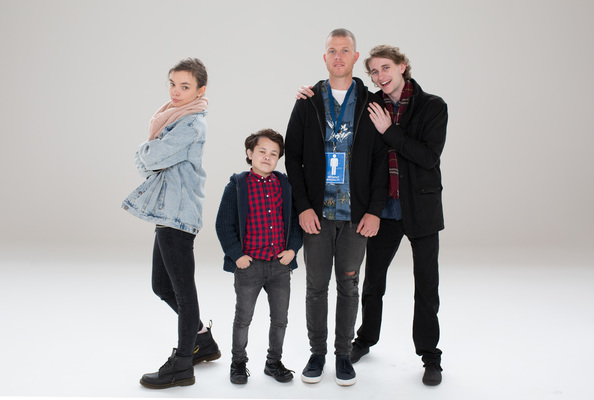By Luke Voogt
A new Geelong film starring local actors is throwing stereotypes away in its portrayal of people with a disability.
Jeremy the Dud, which airs on 17 October, is the story a man “without specialty” living in an alternate universe where disability is the norm.
Corio actor Chris Van Ingen described playing a “real prick of boss” in the film as a role he had been waiting for.
“Everything I’ve played so far is the poor guy in the wheelchair that needs help,” he said.
“The thing I loved about the film is it turns stereotypes on its head. There are nice guys in wheelchairs and nasty guys in wheelchairs.”
Many people thought Van Ingen’s cerebral palsy would prevent him from chasing his acting dream, he said.
The film’s treatment of “normal” Jeremy as a “dud” was a fun way of getting people to throw away such stereotypes, he added.
“That’s what I’ve always tried to do throughout my whole life – not just in my acting.”
Geelong actress Chloe Hayden joined Van Ingen as Heidi, the film’s “voice of reason”.
“She’s the one questioning why people are treating Jeremy the way they are treating him,” Hayden said.
“They treat him like he’s unable to talk for himself and fend for himself.”
Hayden said the idea of turning stereotypes upside down “spoke” to her and that she enjoyed working alongside the film’s unique cast.
“I don’t think you’d find another workplace or movie set with an atmosphere like that.”
Hayden, who has Asperger’s syndrome, has dreamed of being a professional actress since she was a little girl.
“I would say I’m one of the most emotionally-driven people you’ll ever meet,” she said.
Robot Army’s Ryan Chamley wrote and directed the satirical film after seeing prejudice first-hand.
“I have a sister with MS and seeing how people treat her, the assumptions they make, it’s pretty frustrating,” he said.
“Often even when they mean the best they’re still being incredibly rude.”
Chamley’s characters include a womanising amputee (played by paralympian Adam Bowes) and a horrible boss in a wheelchair.
He hoped reversing the stereotypes would help people rethink their behaviours.
“A big one is talking about (people with a disability) while they’re there,” he said.
“I think people have an idea of how they should be around people with a disability without consulting them about it.”
Karingal St Laurence commissioned the film and the organisation’s Ben Flynn said it “brought the idea to life” to create opportunities for its clients.
“We’re just stoked we’ve been able to have been part of something that’s been pretty awesome.”









